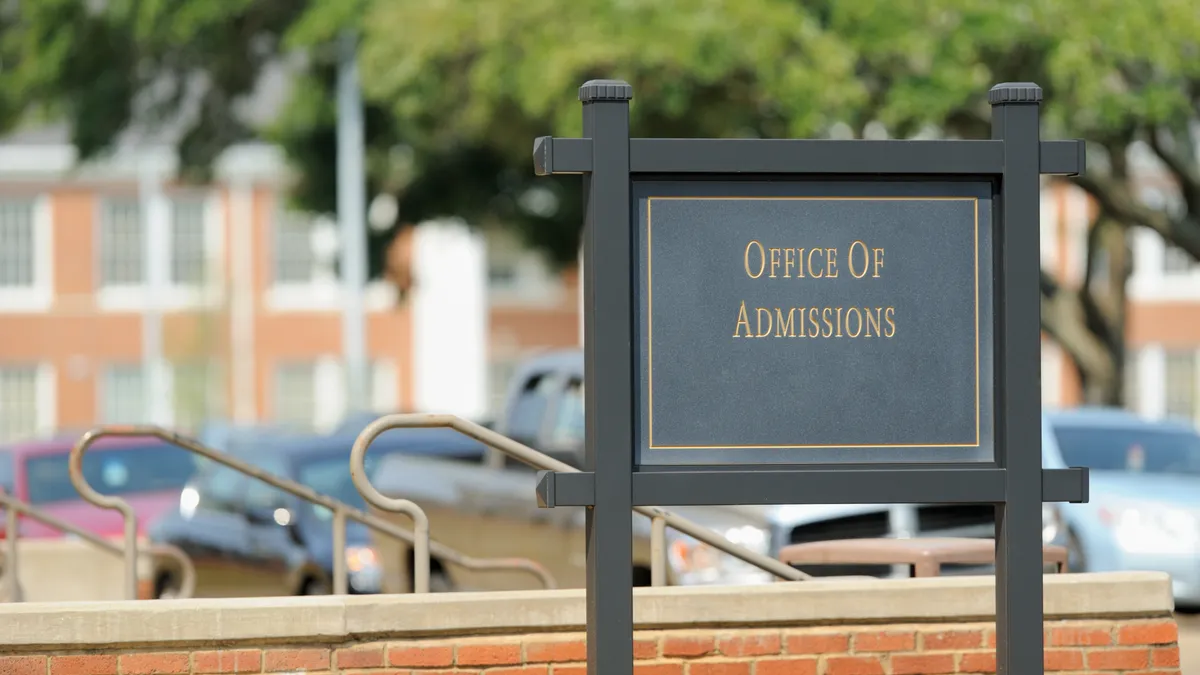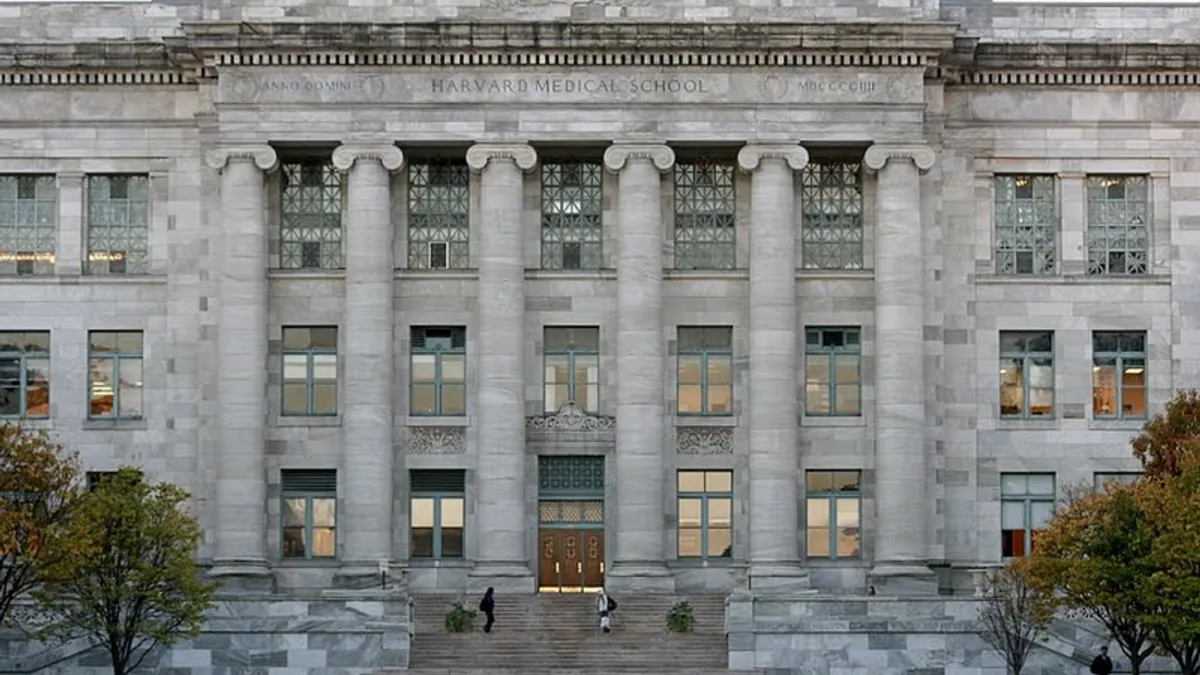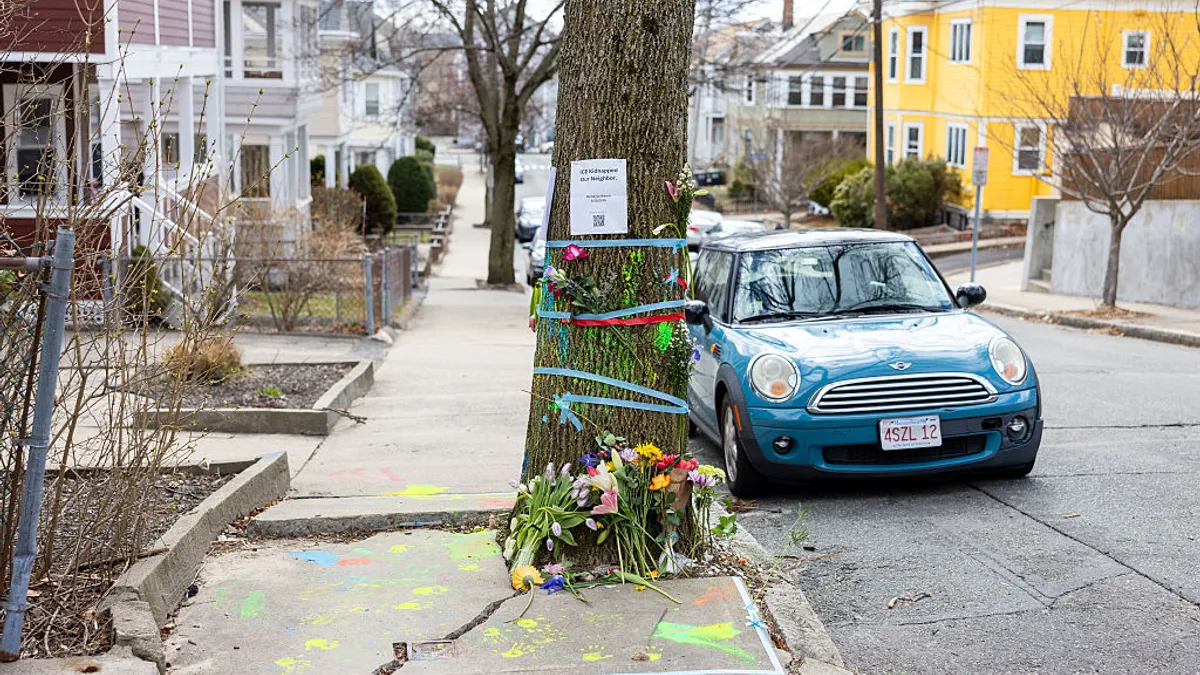Virginia Gov. Glenn Youngkin signed a law this month banning legacy admissions after both chambers of the state's legislature unanimously passed the proposal. Beginning July 1, Virginia’s public colleges will be barred from giving preferential treatment to applicants related to alumni.
The state is only the second to ban the policy at its public colleges, following Colorado in 2021.
But the debate around legacy admissions is heating up after the U.S. Supreme Court ruled against race-conscious admission policies last year, overturning decades of legal precedent and forcing some selective colleges to reevaluate their admissions
Higher education experts said the Supreme Court decision will make it more difficult for colleges to create a diverse student body and make it harder for historically disadvantaged students to gain entry to selective institutions. In turn, some lawmakers have ramped up criticism over legacy policies, which tend to favor White and wealthy students.
Below, we're rounding up five state proposals that would limit or eliminate legacy admissions.
Connecticut
Connecticut lawmakers advanced a bill this month that would prohibit legacy admissions across the state’s public and private colleges.
The state’s higher education committee also amended the legislation by adding a proposed ban on policies that give an advantage to applicants related to college donors. Connecticut Sen. Derek Slap, co-chair of the Legislature’s higher ed committee, cited Virginia’s legacy ban as an inspiration for the move, as it included language barring donor preferences.
The bill has drawn opposition from some of the state’s colleges. Connecticut is home to some well-known and selective private institutions, though at least one has already moved away from legacy admissions.
Wesleyan University, a selective liberal arts institution in Connecticut, gained widespread attention when it ended preferential legacy policies shortly after the Supreme Court decision. At the time, Wesleyan President Michael Roth told The New York Times that the practice served as “a sign of unfairness to the outside world.”
Maryland
Maryland lawmakers are considering a ban on legacy and donor admissions policies for all colleges that receive state funding. The legislation would still allow colleges to ask about applicants' legacy status for data collection purposes.
The state's House passed the bill in a 133-4 vote last month.
In a social media post, Del. Jazz Lewis, majority whip in Maryland's House and sponsor of the bill, called legacy admissions "an unfair practice that benefits a select number of students over those less privileged and connected."
The state’s Senate is weighing the legislation. If passed, the bill would take effect July 1.
The Maryland Independent College and University Association said four of its member institutions — Loyola University Maryland, St. John’s College, Stevenson University, and Washington College — consider legacy status as part of a holistic admissions process.
But Matt Power, president of MICUA, said his organization appreciates the bill's desire to prevent unqualified legacy applicants from being accepted over more qualified candidates with no ties to a college. But, he argued, MICUA members don’t consider legacy status in this way.
"Students who do not meet admission standards are never granted admission due to legacy or alumni relationships," Power wrote in Senate testimony last month. "Even when alumni relationships are considered through a holistic admissions process, no student is denied acceptance because a student with alumni relationships is granted acceptance."
New York
The New York Senate's higher education committee is reviewing legislation that would ban legacy admission and early decision policies at the state's public and private colleges.
Early decision policies lock applicants into binding enrollment agreements before they can compare financial aid packages. That puts low- and middle-income students at a disadvantage, according to some policy experts.
"As the debate around college affordability and access continues to roil our nation and state, a commonsense repeal of these regressive policies will help level the playing field for all hoping to attend our state's most celebrated and prestigious institutions," state Sen. Andrew Gounardes, wrote in his sponsor memo.
Shortly after the Supreme Court's June decision, the New York chapter of the American Civil Liberties Union called for a ban on legacy admissions.
Legacy policies gained traction among colleges in the early 20th century largely as a way to box out rising numbers of Jewish applicants, historians say. These institutions were dominated by Protestant students, so Jewish applicants were unlikely to benefit from newly implemented legacy preferences.
"The history of legacy preference is explicitly racist and antisemitic," the organization said in a statement. "Despite opposition by private institutions and their interest groups, ending legacy preference for New York’s students makes the admissions process fairer and makes student bodies more diverse — goals that every school should want to achieve."
This isn't the first time New York lawmakers have tried to ban legacy admissions. But they now face less opposition than they have in the past. The Commission on Independent Colleges and Universities, an influential group representing some of the state's private colleges, said last year it would no longer oppose a legacy admissions ban.
Massachusetts
In February, Massachusetts' joint higher education committee advanced a bill that would ban legacy admissions, as well as charge the state's higher education department with reviewing colleges' use of early decision admission policies.
Mary Tamer, executive director of the Democrats for Education Reform Massachusetts, praised the bill as a historic step aimed at leveling the college playing field.
"This legislation serves as a crucial turning point, a chance for Massachusetts once again to make education history by removing a practice created solely to exclude certain students from elite institutions," she said in a February statement. "By eliminating legacy preferences, we can send a message that Massachusetts values fairness and equity, not family privilege."
Like Connecticut, Massachusetts is home to a number of top-ranked colleges, including Harvard University and the Massachusetts Institute of Technology.
While MIT says it does not consider applicants' legacy status, Harvard does. Between 2009 and 2015, Harvard’s legacy applicants were almost six times more likely to be admitted than those without a Harvard relative, according to The Washington Post.
The U.S. Department of Education is investigating if legacy and donor preferences at Harvard amount to a form of racial discrimination.
California
Last month, California Assemblymember Phil Ting introduced a bill that would prohibit colleges from granting legacy or donor preferences to applications received on or after Jan. 1, 2025.
“We’re told that opportunities are available to anyone who works hard and gets good grades. But that’s simply not true," Ting said in a February statement. "There’s a side door for students who come from wealth or have connections."
Ting’s use of the phrase “side door” appears pointed.
Several highly selective universities, including some within the University of California system, came under scrutiny when the U.S. Department of Justice charged dozens of people in 2019 with exploiting their admissions processes in the Varsity Blues scandal.
Rick Singer, a California college prep coach and ringleader of the scheme, used the term “side door” to describe how he got the children from wealthy families into elite colleges — falsifying records and paying off college sports officials. Singer was ultimately sentenced to three and a half years in prison for his role in the scandal.






















